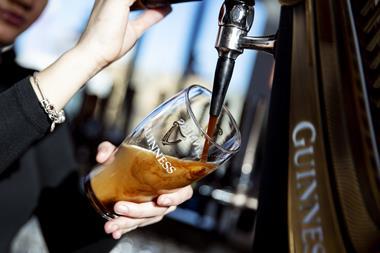It's been a love-hate relationship for centuries, but our admiration for French food and wine shows no signs of abating.
With our growing consumption of rosé wines, croissants and baguettes, Président butter, Roquefort and Camembert cheeses, Bonne Maman jams, Danone yoghurts, as well as Volvic, Evian and Perrier, we are a nation of Francophiles.
Or at least when it comes to the big brands.
The small, artisan products that are so popular in France are finding the UK market an uphill battle, with manufacturers struggling to offer products that are classically French, but modern and cheap enough to be relevant to today's consumers.
French frozen food specialist Tipiak is a case in point. A household name in its domestic market with a turnover of £108m last year, the company has so far been unsuccessful in gaining a foothold in the UK.
One of the difficulties, according to international development manager Christèle Bagnoud, is the difference in perception of convenience and frozen food between the two nations. French shoppers will pay a premium for products they trust to deliver on quality, whatever the category.
The high price point Tipiak's products command have already caused talks with Iceland to fall through, and price has been a sticking point in discussions with other retailers.
"We are having difficulty getting UK buyers to understand the quality of our products," Bagnoud says. "I'm constantly being surprised at the level of promotion and discount expected of frozen food suppliers.
"Using quality ingredients and finishing each product by hand costs money," she says.
The high margins demanded by UK retailers often prove problematic for French suppliers.
"In the business chain the link that wins the most is always the retailer," says Sophie Charton Chemel, export development manager of dairy company Rians. "Then the distributor gets a cut and we as suppliers get what little remains. Some UK retailers should take less margin and double the volume of what they take to make up the difference."
Charton Chemel also points to the volume of red tape that needs to be negotiated simply to present a product to UK buyers - although the system is no easier on the Continent, she admits.
There are important differences, however. In France, retailers are more decentralised and listings and merchandising are agreed at store level, which helps ensure products that trade on provenance can be stocked.
But just as the French like to eat and drink what's produced on their doorstep, a similar trend is growing in Britain, damming the stream of less well-known French products hitting the supermarket shelves.
Cheese is one category where this is particularly evident, with sales of British artisan varieties up 2.9% to £197m [TNS 52w/e 9 September 2007]. The key in continuing this growth, say experts, will be for British cheesemakers to advertise the local qualities of the products. This is something their French counterparts are very good at - and they will be using all their nous to expand what they see as the 'limited space' they command on-shelf.
"It's a way of selling we understand," says Olivier Basin, export manager of Conserverie de Languedoc, which sells cassoulet, foie gras, duck confit, conserves and pâtès from the region under the La Belle Chaurienne brand.
Using provenance as a sales tool isn't helped by the average Brit's sketchy grasp of French geography. "If you are going to heavily promote the regionality of a product you have to make sure it is a familiar region," warns Basin. "In the UK we talk about the South of France or the south west of France as these terms are more familiar to UK consumers. Districts or towns often are not."
This is an issue with which the the French wine industry is familiar. Those in regions lacking the global recognition of Burgundy or Bordeaux have struggled to explain what their appellation signifies.
Fitou co-operative Mont Tauch is one winery that is tackling the issue head-on, investing in a new campaign to demystify the category.
"Not to highlight that a product is French is to miss out on their greatest selling point," points out marketing director Katie Jones.n


















No comments yet